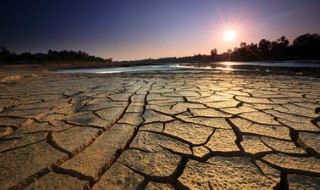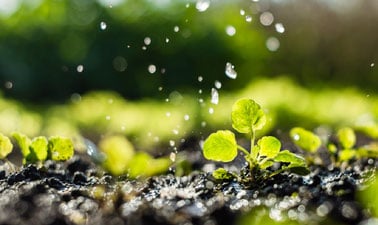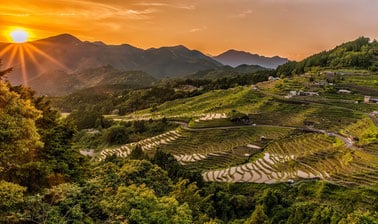Feeding a Hungry Planet: Agriculture, Nutrition and Sustainability
How do we create a healthy and sustainable diet for the growing world population?
What you will learn
- Graduate students and advanced undergraduate students in agriculture, economics, international development and other fields who are learning about the intersectional factors impacting agriculture and food production/consumption
- Nutritionists, agriculture professionals and other practitioners interested in the latest developments in the field
- Sustainable development practitioners ?including those who work for international aid organizations and nonprofits in the realms of poverty, nutrition and agriculture ? who want to understand the lifecycle of food production and food security
- Private actors , such as those engaging in or investing in social entrepreneurship and the support of local agriculture
- How the field has developed and shifted over time, and how recent developments like advanced technology impact farming.
- What is food security? How do poverty, inequality and other factors affect the nutrition of not just individuals, but entire countries?
- All about regulations influencing production, trade and other aspects of agriculture.
- Examples from industries ranging from rice to livestock, and the experiences of smallholder farmers.
- 1.1 Introduction to this MOOC
- 1.2 Global challenges around food
- 1.3 Case study 1: Rice
- 1.4 Case study 2: Smallholder farming
- 1.5 Case study 3: Livestock
- 1.6 Case study 4: Aquaculture
- 2.1 Emergence of modern agriculture
- 2.2 Risks under a Business-As-Usual scenario
- 2.3 Agriculture & the Sustainable Development Goals
- 3.1 What is food security?
- 3.2 Nutrition and health
- 3.3 Consumption and diets
- 3.4 Food losses and waste
- 3.5 Socio-economic dynamics of food systems
- 3.6 Pathways towards food security
- 4.1 Sustainable agriculture intensification
- 4.2 The importance of productivity growth
- 4.3 Climate change adaptation and mitigation
- 4.4 Breeding and genetics
- 4.5 Nutrient management
- 4.6 Soil fertility management
- 5.1 Water management
- 5.2 Crop protection
- 5.3 Good agronomy
- 5.4 Sustainable livestock systems
- 5.5 & 5.6 Functional diversity I & II
- 6.1 Rural economies and urban linkages
- 6.2 Rural development
- 6.3 Markets and supply chains
- 6.4 International trade
- 6.5 Development enhancing investments
- 6.6 Food governance
- 7.1 Pathways to change
- 7.2 Monitoring change
- 7.3 Mechanisms to stimulate change
- 7.4 Investing in science
- 7.5 What can I do?
Program Overview
Agriculture is more than waving fields of wheat; our ability to grow food from existing natural resources ?and without decimating those resources ?is key to sustainably feeding the world. In this course, learn about food security worldwide, the effects of malnutrition, how we manage ecosystems that provide food resources and more. You?ll emerge from this course with a clear answer to the question: What can I do to make food consumption and production more sustainable?
This course is for:
Graduate students and advanced undergraduate students in agriculture, economics, international development and other fields who are learning about the intersectional factors impacting agriculture and food production/consumption
Nutritionists, agriculture professionals and other practitioners interested in the latest developments in the field
Sustainable development practitioners ?including those who work for international aid organizations and nonprofits in the realms of poverty, nutrition and agriculture ? who want to understand the lifecycle of food production and food security
Private actors , such as those engaging in or investing in social entrepreneurship and the support of local agriculture
Partners:
This course is supported by faculty based at Cornell University, Johns Hopkins University, Rothamsted Research, Tufts University, and Wageningen University and Research.
User Reviews
Be the first to review “Feeding a Hungry Planet: Agriculture, Nutrition and Sustainability”
You must be logged in to post a review.







There are no reviews yet.